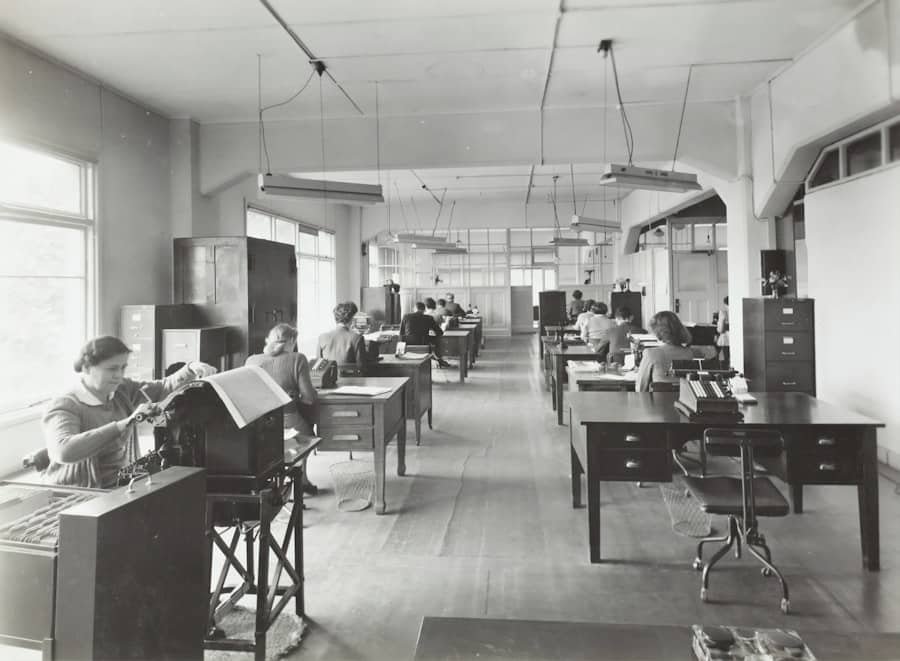Globalization has profoundly altered the functioning of labor markets worldwide. The increased interconnectedness of economies, facilitated by technological and communication advancements, has created a more integrated global economic system. This integration has resulted in the cross-border movement of goods, services, and capital, generating new opportunities and challenges for workers.
The effects of globalization on labor markets are extensive, impacting job availability, labor regulations, outsourcing practices, technological progress, skilled labor migration, and the overall dynamics of the global economy. The globalization of labor markets has intensified competition for employment as businesses seek to access a worldwide talent pool. This development presents both opportunities and challenges for workers, who now compete with candidates both locally and internationally.
Increased labor mobility has led to the migration of skilled professionals across borders in search of improved prospects and higher wages. Furthermore, the growth of outsourcing and offshoring practices has significantly impacted labor markets, as companies aim to reduce costs by relocating production and services to countries with lower labor expenses. These shifts have transformed labor market dynamics, necessitating workers to adapt to new challenges and opportunities in the globalized economic landscape.
Key Takeaways
- Globalization has led to increased interconnectedness of labor markets worldwide.
- Job opportunities have been both created and eliminated due to the impact of globalization.
- Labor laws and regulations have undergone significant changes to adapt to the globalized economy.
- Outsourcing and offshoring have become common practices in the global labor market.
- Technological advancements and automation have transformed the nature of work in the globalized economy.
Impact of Globalization on Job Opportunities
New Job Opportunities in Emerging Industries
Globalization has created new job opportunities in industries such as technology, finance, and international trade. The interconnectedness of economies has led to the expansion of multinational corporations, creating new employment opportunities for workers around the world.
Job Displacement in Traditional Industries
However, globalization has also led to the displacement of jobs in traditional industries such as manufacturing, as companies seek to cut costs by relocating production to countries with lower labor costs. This has resulted in job losses and increased competition for remaining positions in these industries.
Challenges and Concerns in the Globalized Economy
Furthermore, the rise of automation and technological advancements has also impacted job opportunities, as machines and algorithms are increasingly replacing human labor in various industries. This has led to concerns about job security and the future of work, as workers are forced to adapt to new technologies and skills in order to remain competitive in the globalized economy. Additionally, the movement of skilled labor across borders has also impacted job opportunities, as workers from developing countries seek better opportunities in developed economies. This has led to concerns about brain drain in developing countries, as they struggle to retain their skilled workforce.
Changes in Labor Laws and Regulations

The globalization of labor markets has led to significant changes in labor laws and regulations around the world. As companies operate across borders, there is a need for harmonization of labor standards to ensure fair treatment of workers. This has led to the development of international labor standards and conventions aimed at protecting the rights of workers, regardless of their location.
Additionally, the rise of multinational corporations has led to increased scrutiny of labor practices, leading to greater transparency and accountability in the treatment of workers. Furthermore, the movement of skilled labor across borders has also led to changes in immigration policies and regulations in many countries. As skilled workers seek better opportunities in developed economies, there is a need for more flexible immigration policies to attract and retain talent.
This has led to the development of skilled migration programs and initiatives aimed at attracting high-skilled workers from around the world. Additionally, the rise of outsourcing and offshoring has also led to changes in labor laws and regulations, as countries seek to protect their domestic workforce from unfair competition. Overall, the globalization of labor markets has led to significant changes in labor laws and regulations, requiring countries to adapt to new challenges and opportunities in the globalized economy.
Rise of Outsourcing and Offshoring
The rise of outsourcing and offshoring has been a significant trend in the globalized economy, impacting labor markets around the world. Companies are increasingly seeking to cut costs by relocating production and services to countries with lower labor costs, leading to job displacement in many traditional industries. This has resulted in increased competition for remaining positions in these industries, as workers are forced to adapt to new challenges in the globalized economy.
Furthermore, outsourcing and offshoring have also led to concerns about the quality of jobs being created in developing countries. While these practices have led to job creation in some industries, there are concerns about the working conditions and wages of workers in these countries. This has led to calls for greater transparency and accountability in the treatment of workers, as companies operate across borders.
Additionally, the rise of outsourcing and offshoring has also led to changes in labor laws and regulations, as countries seek to protect their domestic workforce from unfair competition. Overall, the rise of outsourcing and offshoring has had a significant impact on labor markets, requiring workers to adapt to new challenges and opportunities in the globalized economy.
Technological Advancements and Automation
Technological advancements and automation have significantly impacted job opportunities and labor markets around the world. The rise of machines and algorithms has led to the displacement of human labor in various industries, leading to concerns about job security and the future of work. As companies seek to cut costs and increase efficiency, they are increasingly turning to automation to replace human labor, leading to job losses in traditional industries.
Furthermore, technological advancements have also created new job opportunities in industries such as technology, finance, and international trade. The interconnectedness of economies has also led to the expansion of multinational corporations, creating new employment opportunities for workers around the world. However, these new opportunities often require workers to adapt to new technologies and skills in order to remain competitive in the globalized economy.
Overall, technological advancements and automation have had a profound impact on job opportunities and labor markets, requiring workers to adapt to new challenges in the globalized economy. As machines and algorithms continue to replace human labor in various industries, workers are forced to develop new skills and competencies in order to remain competitive in the globalized economy.
Movement of Skilled Labor and Brain Drain

Brain Drain in Developing Countries
This has led to calls for greater investment in education and training programs in developing countries, aimed at retaining their skilled workforce. By investing in education and training, developing countries can reduce the likelihood of their skilled workers emigrating to developed economies.
Changes in Immigration Policies
Furthermore, the movement of skilled labor has also led to changes in immigration policies and regulations in many countries. As developed economies seek to attract high-skilled workers from around the world, there is a need for more flexible immigration policies aimed at retaining talent. This has led to the development of skilled migration programs and initiatives aimed at attracting high-skilled workers from developing countries.
Adapting to a Globalized Economy
Overall, the movement of skilled labor across borders has had a significant impact on labor markets around the world, requiring countries to adapt to new challenges and opportunities in the globalized economy. As skilled workers seek better opportunities in developed economies, there is a growing need for greater investment in education and training programs aimed at retaining talent in developing countries.
Challenges and Opportunities for Workers in the Globalized Economy
The globalization of labor markets has presented both challenges and opportunities for workers around the world. The increased competition for jobs has led to concerns about job security and wage stagnation in many industries. Additionally, the rise of outsourcing and offshoring has led to job displacement in traditional industries, requiring workers to adapt to new challenges in the globalized economy.
However, globalization has also created new job opportunities in industries such as technology, finance, and international trade. The interconnectedness of economies has also led to the expansion of multinational corporations, creating new employment opportunities for workers around the world. Furthermore, technological advancements have created new job opportunities but also require workers to adapt to new technologies and skills.
Overall, the globalization of labor markets has required workers to adapt to new challenges and opportunities in order to remain competitive in the globalized economy. As companies operate across borders and seek to cut costs through outsourcing and automation, workers are forced to develop new skills and competencies in order to secure employment in a rapidly changing global economy.
If you’re interested in learning more about how globalization has impacted labor markets worldwide, you should check out the article “The Effects of Globalization on Labor Markets” on The Econosphere. This article delves into the ways in which globalization has transformed the way people work and the types of jobs available in different countries. It also discusses the challenges and opportunities that globalization has brought to the labor market. For more insightful articles on economics and global trends, visit The Econosphere’s blog.
FAQs
What is globalization?
Globalization refers to the increasing interconnectedness and interdependence of countries and their economies through the exchange of goods, services, information, and ideas.
How has globalization changed labor markets worldwide?
Globalization has led to the outsourcing of jobs to countries with lower labor costs, the rise of multinational corporations, and the increased mobility of labor. It has also created new job opportunities in industries such as technology and finance.
What are the benefits of globalization on labor markets?
Globalization has led to increased efficiency, productivity, and innovation in labor markets. It has also provided access to new markets and opportunities for workers to gain new skills and knowledge.
What are the challenges of globalization on labor markets?
Globalization has led to job displacement, wage stagnation, and increased competition for jobs. It has also raised concerns about labor rights, working conditions, and income inequality.
How has globalization impacted the distribution of wealth in labor markets?
Globalization has contributed to the concentration of wealth in the hands of a few, while leaving many workers behind. It has also widened the gap between high-skilled and low-skilled workers in terms of wages and job opportunities.
What are some examples of how globalization has changed labor markets?
Examples of how globalization has changed labor markets include the offshoring of manufacturing jobs to countries with lower labor costs, the rise of the gig economy, and the increased demand for skilled workers in technology and finance sectors.








